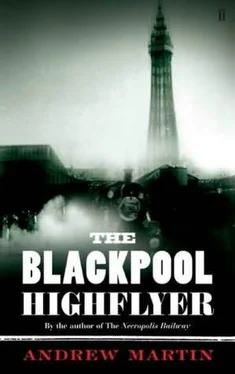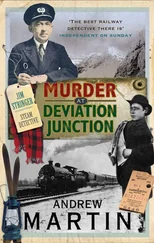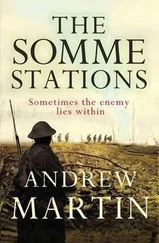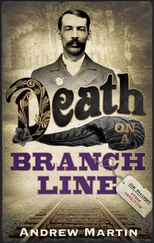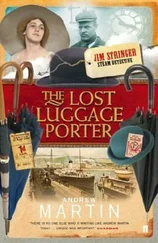Andrew Martin - The Blackpool Highflyer
Здесь есть возможность читать онлайн «Andrew Martin - The Blackpool Highflyer» весь текст электронной книги совершенно бесплатно (целиком полную версию без сокращений). В некоторых случаях можно слушать аудио, скачать через торрент в формате fb2 и присутствует краткое содержание. Жанр: Детективная фантастика, на английском языке. Описание произведения, (предисловие) а так же отзывы посетителей доступны на портале библиотеки ЛибКат.
- Название:The Blackpool Highflyer
- Автор:
- Жанр:
- Год:неизвестен
- ISBN:нет данных
- Рейтинг книги:5 / 5. Голосов: 1
-
Избранное:Добавить в избранное
- Отзывы:
-
Ваша оценка:
- 100
- 1
- 2
- 3
- 4
- 5
The Blackpool Highflyer: краткое содержание, описание и аннотация
Предлагаем к чтению аннотацию, описание, краткое содержание или предисловие (зависит от того, что написал сам автор книги «The Blackpool Highflyer»). Если вы не нашли необходимую информацию о книге — напишите в комментариях, мы постараемся отыскать её.
The Blackpool Highflyer — читать онлайн бесплатно полную книгу (весь текст) целиком
Ниже представлен текст книги, разбитый по страницам. Система сохранения места последней прочитанной страницы, позволяет с удобством читать онлайн бесплатно книгу «The Blackpool Highflyer», без необходимости каждый раз заново искать на чём Вы остановились. Поставьте закладку, и сможете в любой момент перейти на страницу, на которой закончили чтение.
Интервал:
Закладка:
'What do you reckon?' I said again.
'Fair do's,' said the clerk. 'I'll give you thruppence for it.'
'It's yours gratis' I said, 'if you answer the question.'
'I forget' he said.
'You forget what?' 'The question.'
'A big fellow'1 said, 'running to fat; lot of hair; fancy waistcoat. Acts like a lord.' I was still holding up the ticket.
'I did strike a fellow like him,' said the clerk.
'When?'
'Forty-five minutes ago.'
'Where was he off to?'
'Goole.'
I nodded. Step on at Goole for the Continent.
'When's next Goole train?' I said.
'Half an hour,' said the ticket clerk.
I handed over the interesting ticket to the clerk, and had a third-class single to Goole off him in return. I did not look at the number.
Chapter Thirty-seven
All morning there'd been something amiss; all bloody summer there had been, and, as the train for Goole pulled out of Sowerby Bridge station, the answer came: blue blackness in the sky.
I had never been to Goole, but I knew it to be an inland port. The barges used the canals that went out from it – and there were any number of those. The sea-going ships came and went by the Humber Estuary, which by the time it reached Goole was called the river Ouse.
So the steamships went out into a river, and they could only do it when the tide was right.
The eastward ride to Goole was a two-hour touch, taking me right across Yorkshire. The rain was stalled in the blackness at Sowerby Bridge; skies were clear again over Wakefield, but our little train struck storm conditions once more at Pontefract, where the black ink was spilling across the sky. Here I leant out of the window as the guard was giving the 'right away', and one big raindrop was blown into my face.
The first lightning flash happened just as Goole appeared, and it seemed to bounce the whole town into my view.
Lightning is the real light, and all was revealed in an instant: the frightening black and red water tower, the tall coal hoists like factories on legs that could roll back and forth, and one of them seemed to be walking through the port in that bright, white moment, but no: that was the coal hoist that floated. I saw the sailing ships, plenty of those – the masts and yardarms made tall crucifixes – and the steamships too, with their backward-sloping funnels. Most would be of the Lanky's own fleet. The station was only a few hundred yards from the docks. As I stepped through the ticket gate, the wind made the sound of a motorcar – a motorcar far off but gigantic. The rain was flying in the wind; the bookseller outside the station had an oilcloth over all his wares.
'Batten down the hatches,' he said to me as I passed by.
I stopped beyond the station for a moment, looking at the docks. Goole was not like a town, but more like a giant system, with the moving cranes going one way and the trains running a different way, and the houses hard by the docks with sea water rolling before them instead of roads. The lightning came again from out over the Humber, like the blue lines you might see in the whites of a woman's eye, in the corner of the eye, almost out of sight.
And then the lightning came again, from a different side of the seaway, as if the light was blown by the wind.
I walked on into the docks. The first thing I struck was a church that stood in the centre of the low dock buildings, like the hub of a wheel. The flag on the steeple was having a rare old time of it. I saw that the clock was lit by lightning- coloured gas.
The time was midday – midday in summer and the town was dark, with gas lamps lit all across the docks.
I walked on, and the water that should have been down there in the docks was up and at me, and there was a sharpness to the wetness. There were half a dozen docks before me, each like a town square filled with water. At one dock close by, two men were winding wheels on opposite sides of a small pump. A white tube, shining in the rain, came from the pump and hung down over the dock wall into the water, and I thought: there's a man down there on the end of that. Well, he was out of the rain at any rate. Over the road from where I stood were two warehouses with a pub crammed between them. Along from the warehouses was a building that looked like a chapel, but was not. The wide doorway was propped open. Above it was a carving of two small galleons bobbing about on a sea, and, above these, a flagpole flew the seagoing version of the Lancashire and Yorkshire Railway badge. It was the shipping office for the Lanky.
The place was stifling: long lines of men in bowlers and steaming Ulsters stood queuing for tickets. The two blokes giving out the tickets at a long table were both smoking pipes. It took a long time for any man to get his ticket, for it was all a lot of fishing in pocket books, presentation of passports, checking of same; and finally the issuing of tickets that looked like little books, with each page needing to be stamped.
Behind the ticket clerks was a wide painting showing the fleet of Lanky steamers, each in its own bit of sea, and all set in a circle going around a sort of gravestone on which were two columns headed 'continental ports' and 'days of sailing'. Today was Monday. On Monday there were sailings to Amsterdam, Antwerp, Ghent, Hamburg, Rotterdam. All ships conveyed merchandise, but would take passengers too – it was ten bob to most places.
I walked up alongside one of the fellows in the queue. 'What time are the ships going off today?' I asked him.
'Four o'clock.'
He'd answered without looking at me. He looked like a criminal. Every man jack of them in that queue looked as if he was escaping from somebody or something. And then I noticed a copper standing in the corner of the room, and for the first time I was set thinking about what I would do if I tracked down George. Up to then I'd just been dreaming of saying to him: 'I know you did it, you fucking rotter.'
I don't know exactly why, but I never tried asking the ticket clerks in the shipping office whether they'd sold a ticket to a fellow with the particular looks of George Ogden. It was something about the length of the queue, and the way the blokes silently smoked as they tore and stamped the dockets. I knew it would be like talking to a wall.Then there was the copper.
I could put the whole matter in his hands. But no, not yet. It would be Manchester all over again if I did that.
I walked out of the shipping office and the storm was still there. I watched the rain hitting the sea like a quarrel and streaming through the circles of light around the gas lamps. The two men were still winding the wheels on the small pump connected to the air tube. And something being done in the docks was sending an underwater-bell sound floating over Goole.
I walked into one terraced street, turned into another. Between two houses was a shop with a wide black iron panel fixed to its front. Pressed into the iron was the shape of three balls, as if three iron balls had been hurled there when the iron was hot. I saw the remains of gold paint in the hollows, and below, also driven into the iron, the words 'harper brothers, money advanced on pictures, bronzes, violins amp; c amp; c.'
I stared at this place, and George Ogden walked out of its door holding a little case.
I was over the road from him and along a little. I shouted out and he ran directly around the corner with his funny, wobbling run. But it served him well enough because, as I stepped forward, I slipped on the slimy kerbstone, dashing the back of my head on the cobbles. I put my hand directly up to the wound that had been sewn. It was not torn. Then I hared around the corner, striking a long, empty street, dead straight. It ended in lines of railway wagons. As I watched, the nearest line of wagons jangled into life, and the words 'transhipment', 'coal factors and exporters', 'transhipment', 'coal factors and exporters', over and again in alternation, were dragged across the end of the street.
Читать дальшеИнтервал:
Закладка:
Похожие книги на «The Blackpool Highflyer»
Представляем Вашему вниманию похожие книги на «The Blackpool Highflyer» списком для выбора. Мы отобрали схожую по названию и смыслу литературу в надежде предоставить читателям больше вариантов отыскать новые, интересные, ещё непрочитанные произведения.
Обсуждение, отзывы о книге «The Blackpool Highflyer» и просто собственные мнения читателей. Оставьте ваши комментарии, напишите, что Вы думаете о произведении, его смысле или главных героях. Укажите что конкретно понравилось, а что нет, и почему Вы так считаете.
